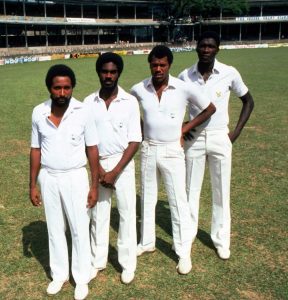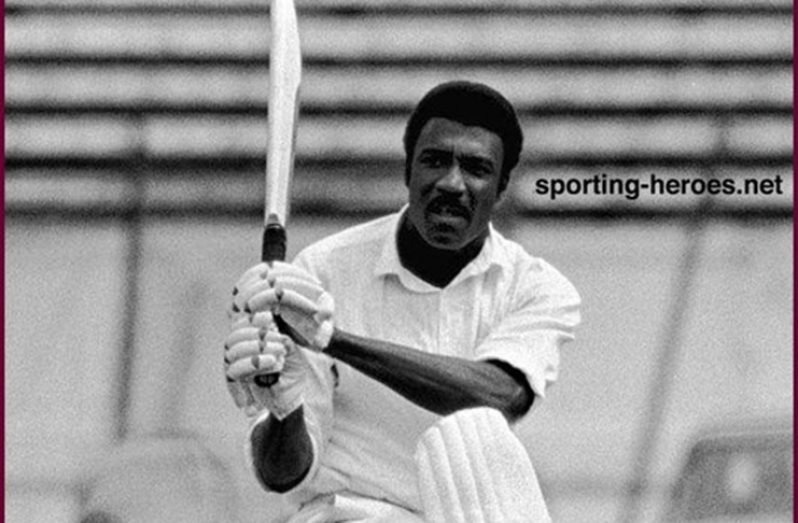
AFTER losing five Tests to one against Australia in 1975-76, a dejected Clive Lloyd, the captain of the West Indies team, spent a few days at my Melbourne residence. During that period, we both decided to drown our sorrows over a few pints of Australian beer at a nearby South Yarra pub.
During that drinking session Clive said to me, “Rudi, my team will be the best team in the world for the next ten years.” I thought the beer had got to his head and asked, “How are you planning to do that? We were just beaten badly by Australia.” He then laid out his vision for the future of the West Indies team and articulated his strategy for making his vision a reality.
Who would have thought that this boozing session would have resulted in the genesis of West Indies’ amazing success?
It must now be extremely difficult for Clive and his band of champions to come to terms with the dreadful performances of current West Indies teams and the crazy and ignorant things that are happening in the administration of West Indies cricket.
West Indies cricket has reached a new low. West Indies has been beaten consistently by Afghanistan, three times in the recently concluded World Cup Qualifying Tournament in Zimbabwe.
More disturbing was the near defeat of the team by Scotland. That loss would probably have eliminated the team from the next World Cup. Surely, West Indies must now be placed below Afghanistan in the ODI rankings.
Let us examine some of the fundamental factors that enhance and inhibit team performance.
Questions focus attention.
To move forward, Cricket West Indies (CWI) and its players must ask themselves fundamental questions such as: Who are we? What do we want to achieve and become (our vision)? What do we believe in and stand for (our principles and values)? Why do we exist (our purpose)? What are the bad habits, poor excuses, and outdated traditions and structures that are holding us back?
Not only will honest answers to these questions direct and control CWI’s behaviour but they will also define its culture and form the fabric on which leadership and performance will be built.
Having created a clear vision, CWI should spend a lot of time establishing its core values and its hierarchy of values. Values are extremely important. They shape the structure and behaviour of the organisation as well as the quality and competence of its leadership.
Beliefs and values are to teams what roots are to trees. Without strong roots trees fall in the wind; without powerful beliefs and sound values, teams and organisations fall apart when buffeted by the winds of pressure and competition.
CWI’s core values are not clear or well known inside or outside the organisation. It has great difficulty bridging the gap between what it says and what it does. Since it confuses its intended behaviour with its actual behaviour, it doesn’t recognise its own rhetoric/reality gap. Consequently, it has lost the trust, respect and confidence of the Caribbean people.
The most striking deficiency and the greatest incompetence of its leadership can be found in its abject failure to show rather than just tell what CWI should stand for.
CWI’s refusal to accept accurate and constructive feedback is also a serious and dangerous deficiency. Furthermore, it does not seem to understand the adage that ‘what gets measured gets managed’. Since it does not measure or provide feedback to everyone about each of its core values, whatever they are, it sends a clear message that it is not serious about them.
CWI appears to have a serious aversion towards former great players. This is unfortunate because its shared values should represent a blend of successful principles from the past, and the correct beliefs and values that will give it success in the future. It must show respect for the heritage, strengths and successes of past teams and players. After all, performance is influenced not only by goals or the preferred future, but also by history and past experiences.
Let’s return to Lloyd’s success. There was great ability in Clive’s team but he knew that talent alone would not be enough to produce a champion team. He built his leadership and his team on four strong pillars. First, an agenda for change that consisted of a powerful and clear vision and a simple but intelligent strategy to achieve that vision; second, a group of competent and highly motivated players committed to implementing his agenda; third, the eradication of bad habits, insularity and distrust and fourth the establishment of strong self-discipline and self-motivation.
In the pub he told me that he would search the Caribbean for players with the ‘right stuff’ and would mould them into a highly motivated and disciplined unit to conquer all before them.
He wanted his team to be the fittest, mentally and physically, the best fielding team, the best bowling team, and the best batting team.
And he wanted to be the most successful West Indies captain. He said that he would favour players who were hard-working, enthusiastic and professional and stressed that he would make mental toughness and self-discipline top priorities.
Once those things were in place he would execute his plan in a forceful manner, using a quartet of aggressive fast bowlers to hunt in a pack against opposing batsmen. These were amazing ideas so soon after a humiliating defeat. But then I remembered that failure sometimes breaks the shell that stifles talent and creativity.
He thought that his greatest challenge would be the eradication of local prejudices and insularity and getting his players to trust, respect and care for each other. He encouraged them to become leaders on the field and wanted them to be aware of their roles and responsibilities at all times. Clive led by example but he also knew what made his players tick and what he had to do to motivate them.
The magnitude of Clive’s achievements has not been fully appreciated by the Caribbean people. Some of his critics have said some harsh things about him. But he brought together a diverse collection of talented individuals who lacked direction, focus, discipline and common purpose and transformed them into a highly professional and all-conquering unit that dominated world cricket for sixteen years; a group that became one of the most successful teams in the history of sport.
CWI seems intent on re-inventing the wheel, but the wrong wheel, and is going down an incorrect path. Judging from the results so far, that path has led to disaster and promises to lead to further disaster.



.jpg)








